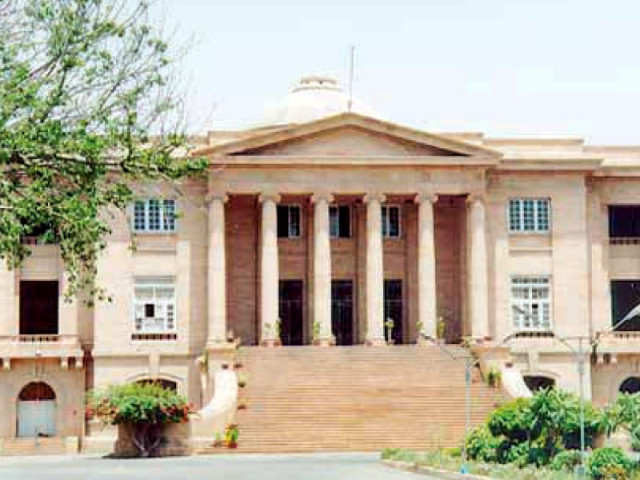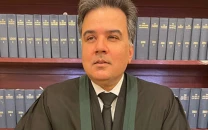SHC reserves verdict on collecting municipal tax in power bills
Mayor assures of taking the matter to City Council, consulting opposition

The Sindh High Court (SHC) has reserved its verdict on petitions challenging the collection of Municipal Utility Charges and Taxes (MUCT) through electricity bills, with an interim decision expected today.
A two-member bench led by Justice Salahuddin Panhwar heard arguments on Wednesday. During the session, Mayor Karachi Murtaza Wahab and various legal representatives presented their cases.
Usman Farooq, representing Jamaat-e-Islami (JI), argued that the Karachi Metropolitan Corporation (KMC) does not benefit from the agreement with K-Electric (KE), as KMC still faces a debt of Rs1.056 billion. Justice Panhwar inquired about the practical steps JI would take if they were in power, to which Farooq referenced existing Supreme Court orders on the local government system.
The Additional Advocate General contended that the City Council had already approved the KMC-KE agreement for collecting MUCT via power bills, emphasizing that the KMC has the authority to impose such taxes.
Justice Panhwar questioned the benefits distribution, emphasising that it is crucial to identify who profits from the tax collection. Mayor Wahab assured that the citizens of Karachi would benefit and that he is willing to present the matter to the council for approval.
The Sindh government's lawyer highlighted the significance of the tax issue, mentioning similar Supreme Court rulings in public interest cases. The court suggested differentiating between commercial and residential customers, proposing higher taxes for commercial entities. The government lawyer noted that the tax demand is minimal (Rs 50 on bills of Rs12,000-18,000), and Mayor Wahab explained the reduction of the previous tax range (Rs200-500) to provide relief, now set at Rs50-200.
The court questioned KE's assurance on not cutting electricity for non-payment of this tax. KE's lawyer clarified that they cannot separate the KMC tax from the overall bill, and non-payment would result in action.
Mayor Wahab stated he would seek council re-examination of the matter, ensuring public opinion is considered. The JI lawyer stressed the importance of consulting the opposition and adhering to all rules. Mayor Wahab promised to form a committee to gain stakeholder confidence and ensure transparency.
The court reserved its final verdict but announced an interim decision to be issued today. Mayor Wahab submitted a written statement through KMC's lawyer, Hassan Abidi, pledging to review the KMC-KE contract. The statement assured that service charges would be deducted directly by KE, with no other direct deductions. A special committee of council members will review the agreement, which will be submitted for council approval. Additionally, citizens with electricity bills under Rs. 10,000 would be exempt from the tax.
Published in The Express Tribune, May 30th, 2024.



















COMMENTS
Comments are moderated and generally will be posted if they are on-topic and not abusive.
For more information, please see our Comments FAQ